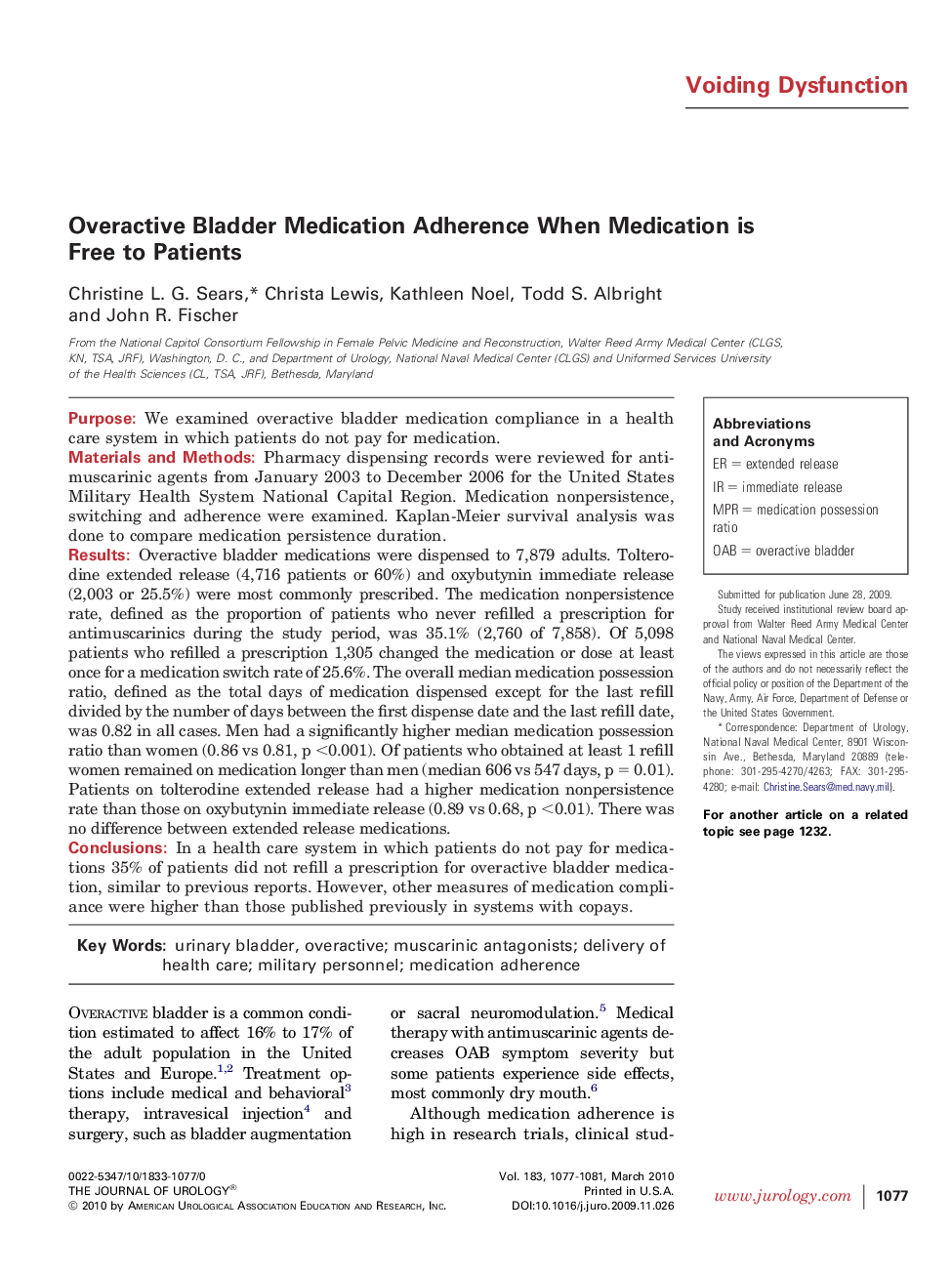| Article ID | Journal | Published Year | Pages | File Type |
|---|---|---|---|---|
| 3874819 | The Journal of Urology | 2010 | 5 Pages |
PurposeWe examined overactive bladder medication compliance in a health care system in which patients do not pay for medication.Materials and MethodsPharmacy dispensing records were reviewed for antimuscarinic agents from January 2003 to December 2006 for the United States Military Health System National Capital Region. Medication nonpersistence, switching and adherence were examined. Kaplan-Meier survival analysis was done to compare medication persistence duration.ResultsOveractive bladder medications were dispensed to 7,879 adults. Tolterodine extended release (4,716 patients or 60%) and oxybutynin immediate release (2,003 or 25.5%) were most commonly prescribed. The medication nonpersistence rate, defined as the proportion of patients who never refilled a prescription for antimuscarinics during the study period, was 35.1% (2,760 of 7,858). Of 5,098 patients who refilled a prescription 1,305 changed the medication or dose at least once for a medication switch rate of 25.6%. The overall median medication possession ratio, defined as the total days of medication dispensed except for the last refill divided by the number of days between the first dispense date and the last refill date, was 0.82 in all cases. Men had a significantly higher median medication possession ratio than women (0.86 vs 0.81, p <0.001). Of patients who obtained at least 1 refill women remained on medication longer than men (median 606 vs 547 days, p = 0.01). Patients on tolterodine extended release had a higher medication nonpersistence rate than those on oxybutynin immediate release (0.89 vs 0.68, p <0.01). There was no difference between extended release medications.ConclusionsIn a health care system in which patients do not pay for medications 35% of patients did not refill a prescription for overactive bladder medication, similar to previous reports. However, other measures of medication compliance were higher than those published previously in systems with copays.
